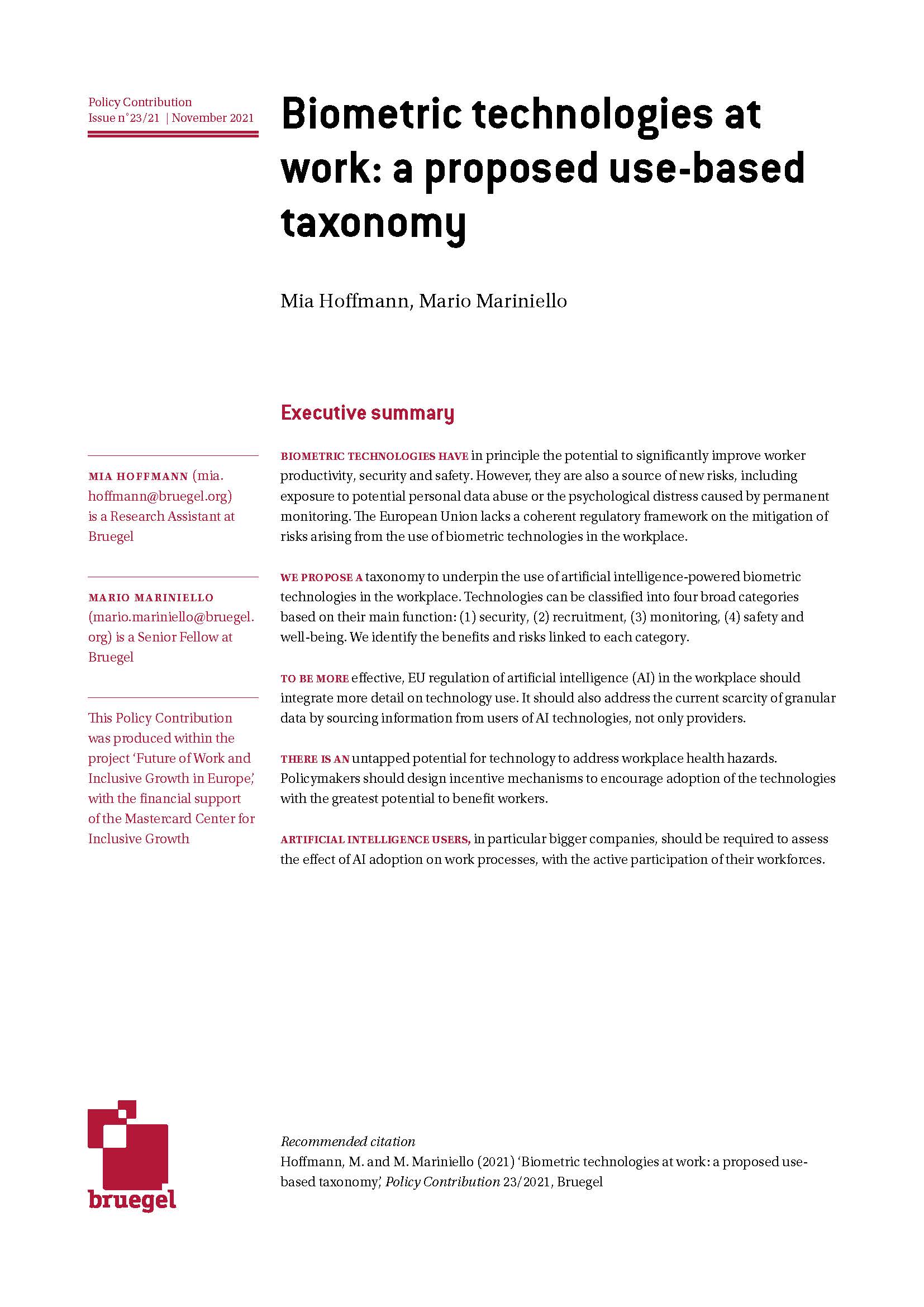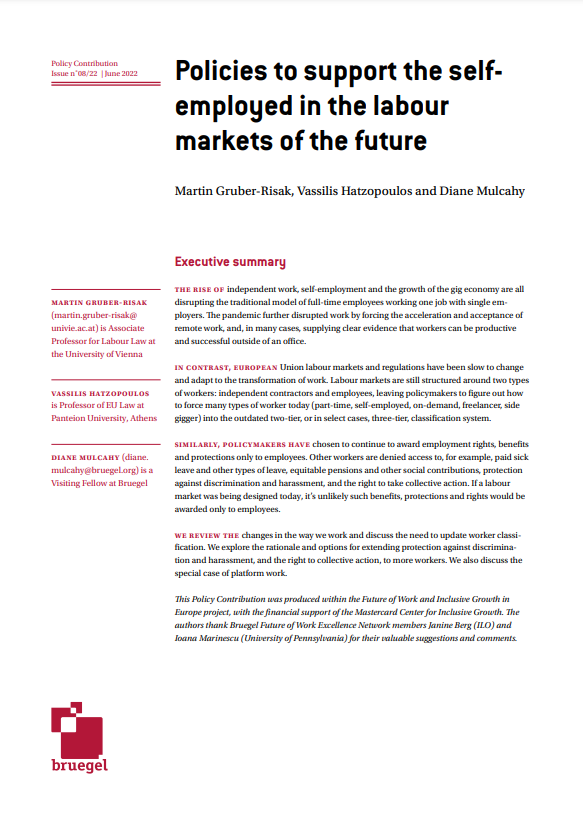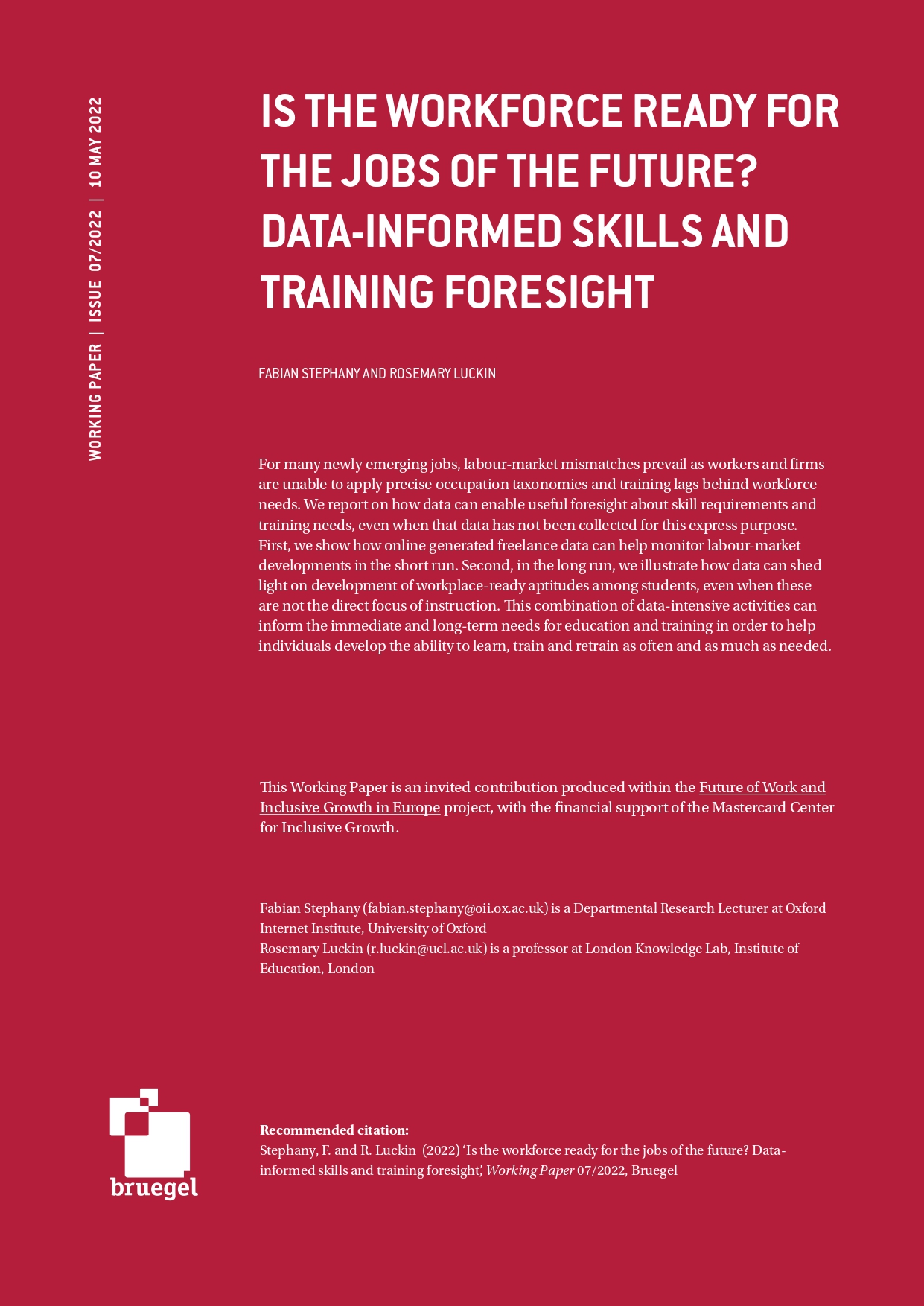Policy Contribution
Biometric technologies at work: a proposed use-based taxonomy
Technology may not have a significant negative impact on the quantity of jobs available to humans, but it certainly transforms them, changing how jobs are performed, with implications for workers’ quality of life and for productivity. Hence the focus shifts from a quantitative to a qualitative perspective.
This Policy Contribution was produced within the project ‘Future of Work and Inclusive Growth in Europe’, with the financial support of the Mastercard Center for Inclusive Growth
Biometric technologies have in principle the potential to significantly improve worker productivity, security and safety. However, they are also a source of new risks, including exposure to potential personal data abuse or the psychological distress caused by permanent monitoring. The European Union lacks a coherent regulatory framework on the mitigation of risks arising from the use of biometric technologies in the workplace.
We propose a taxonomy to underpin the use of artificial intelligence-powered biometric technologies in the workplace. Technologies can be classified into four broad categories based on their main function: (1) security, (2) recruitment, (3) monitoring, (4) safety and well-being. We identify the benefits and risks linked to each category.
To be more effective, EU regulation of artificial intelligence (AI) in the workplace should integrate more detail on technology use. It should also address the current scarcity of granular data by sourcing information from users of AI technologies, not only providers.
There is an untapped potential for technology to address workplace health hazards. Policymakers should design incentive mechanisms to encourage adoption of the technologies with the greatest potential to benefit workers.
Artificial intelligence users, in particular bigger companies, should be required to assess the effect of AI adoption on work processes, with the active participation of their workforces.
Recommended citation
Hoffmann, M. and M. Mariniello (2021) ‘Biometric technologies at work: a proposed use-based taxonomy’, Policy Contribution 23/2021, Bruegel







